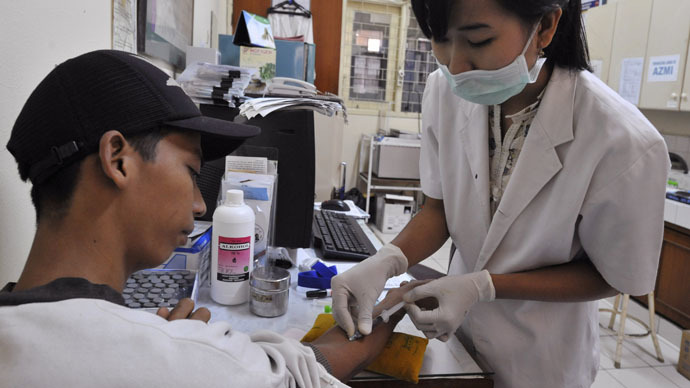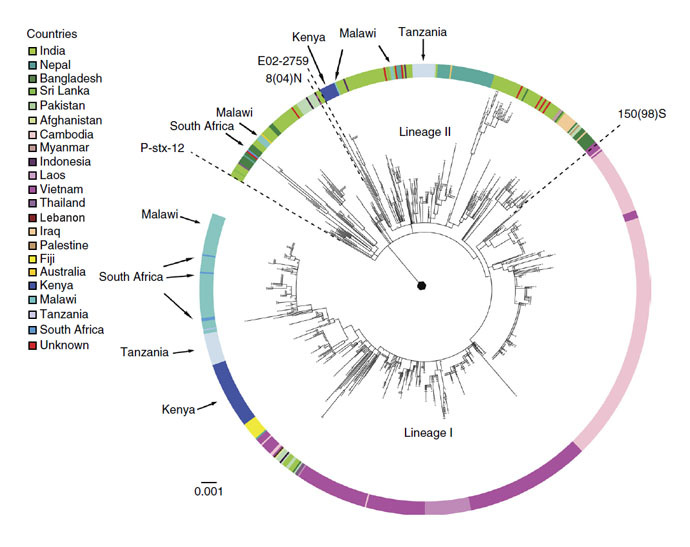Drug-resistant typhoid tracked worldwide, public health threat 'critical' - study

A deadly typhoid ‘superbug’ is spreading across Africa and Asia, creating a “previously under-appreciated and ongoing epidemic,” a groundbreaking international study warns. H58, driven by a single family of the bacteria, is resistant to most antibiotics.
Researchers from the Wellcome Trust Sanger Institute, who have been studying the far-reaching infection, say typhoid affects around 30 million people each year. According to researchers, H58 has emerged and spread throughout Asia and Africa over the last 30 years.
Evidence of a recent unreported wave of H58 transmission in many countries in Africa has also been found.
The scientists say the study results add to the message that "bacteria do not obey international borders."
What sounds even worse is that H58 is currently “displacing other typhoid strains that have been established over decades and centuries throughout the typhoid endemic world, completely transforming the genetic architecture of the disease,” the researchers, whose work has been published in the journal Nature Genetic, have pointed out in a statement. The large-scale research involved some 74 scientists in almost two dozen countries.
The research team sequenced the genomes of 1,832 samples of Salmonella typhi bacteria collected from 63 countries between 1992 and 2013. As much as 47 percent were from the H58 strain, the scientists say.

Dr. Vanessa Wong, lead author from the institute, added in a statement that global surveillance to address public health threat in many developing countries around the world "at this scale is critical."
Typhoid, also called typhoid fever, is highly contagious and is caused by a bacterium called Salmonella typhi (related to the bacteria which cause salmonella food poisoning.) Symptoms include nausea, fever, abdominal pain accompanied by pink spots on the chest. Typhoid is contracted by drinking or eating contaminated matter. Children and younger adults are most at risk of developing typhoid fever because their immune systems are more vulnerable. Untreated, the disease can lead to complications which may turn fatal for up to 20 percent of patients.
Vaccines are available, but due to limited cost-effectiveness they are not widely used in poorer countries. Therefore the disease is mostly controlled through antibiotic drugs. However, over 70 scientists involved in the latest study have come to the conclusion that the H58 "superbug" version, which is resistant to multiple types of antibiotics, is now becoming dominant, "continuing to evolve."
According to Dr. Kathryn Holt, a scientist at the University of Melbourne in Australia who also worked on the landmark study, multidrug resistant typhoid has been "coming and going" since the 1970s. She says it's caused by the bacteria picking up new antimicrobial resistance genes, which are usually lost when people switch to a new drug.
"In H58, these genes are becoming a stable part of the genome, which means multiply antibiotic resistant typhoid is here to stay," Holt said.












